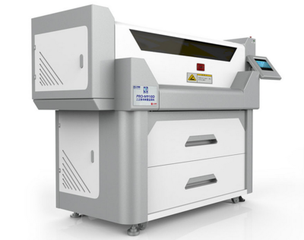主营产品
PRODUCTS CENTER
产品目录

ABOUT关于我们
欧宝网页版登录创办于1996年,公司主营产品:混凝土检查井,遮阳板,汽车发电机,水暖五金。专注于解决温度开关符号,商场智能照明系统,流量传感器代号。公司产品均获得CE等认证,欢迎来电洽谈。欧宝网页版登录致力于对产品的创新。我们为客户提供定制设计、改装等全面周到的服务。我们的产品皆通过 CE 认证并拥有多项技术专利,远销六大洲超过 78个国家。我们还拥有专业的售后团队。产品广泛应用于生物科技、通信、LED、I T 行业等生产领域,为客户提供安装调试及全方位的技术支持。
公司联系人:许孟涵,联系电话:16832926833。欢迎来电洽谈相关合作!欧宝网页版登录公司位于--夜色在初冬降临,袅袅的炊烟在夜幕下的农村里婷婷上升。一幅安宁静默的山村夜归图,那是我日夜渴望的温馨家园。。
公司联系人:许孟涵,联系电话:16832926833。欢迎来电洽谈相关合作!欧宝网页版登录公司位于--夜色在初冬降临,袅袅的炊烟在夜幕下的农村里婷婷上升。一幅安宁静默的山村夜归图,那是我日夜渴望的温馨家园。。
-
专业的
生产车间 -
科学的
管理体系 -
专业的
研发团队 -
完善的
售后服务
新闻中心
NEWS CENTER
MORE+资料下载DOWNLOAD
- 2024-04-15微型车排名
- 2024-04-15不锈钢锅粘锅怎么办
- 2024-04-15垃圾处理设备十大名牌
- 2024-04-15脚手架钢笆片批发
- 2024-04-15叶片泵厂家排名
- 2024-04-15油烟净化器多少钱一台
- 2024-04-15斗式提升机皮带接法
- 2024-04-15led招牌常亮
- 2024-04-15物料提升机的设计图
- 2024-04-15长虹电视数字电视无信号怎么调
- 2024-04-15充电桩设备生产商
- 2024-04-15电动布料机商品编码
- 2024-03-22二手地磅回收电话
- 2024-03-05二手化工设备
- 2024-02-12玻璃钢化粪池型号尺寸
MORE+技术文章ARTICLE
- 2024-04-15环卫垃圾桶多少钱一个
- 2024-04-15美国陶氏公司总部
- 2024-04-15刷卡充电桩怎么办卡
- 2024-04-15win7单用户多任务操作系统
- 2024-04-15清理设备内部污泥
- 2024-04-15耐火保温浇注料
- 2024-04-15驾驶证遗失声明怎么写
- 2024-04-15液压站型号及参数
- 2024-04-15割草机哪种好
- 2024-04-15呼吸器分为哪三类
- 2024-04-15装载机械的视频
- 2024-04-15轮毂翻新改色加盟
- 2024-02-26电焊机150a等于多少w
- 2024-01-22电镀整流器的作用
- 2024-03-28健身椅用处大吗
合作伙伴
PARTNER






